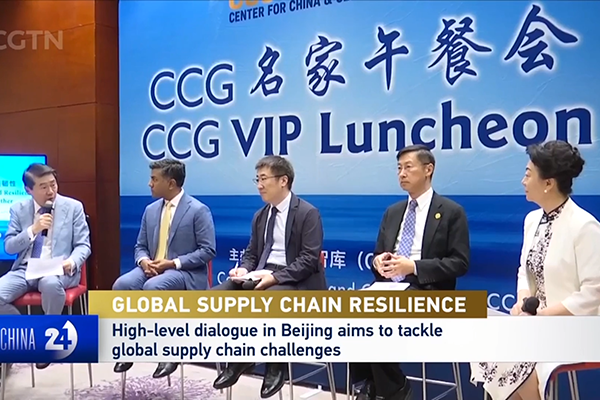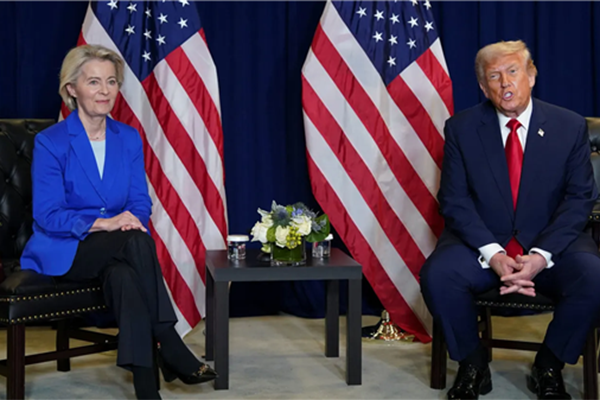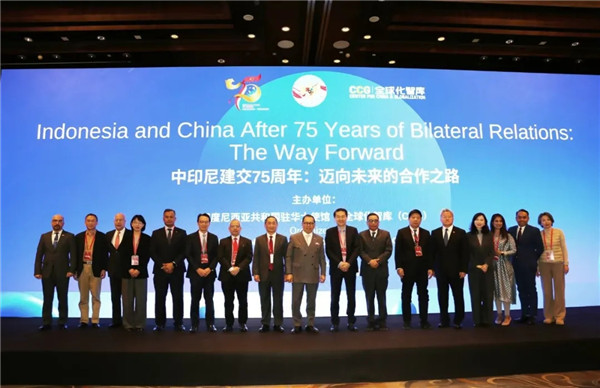Foreign Policy EIC urges overhaul of ‘broken’ world order
July 25 , 2025The editor-in-chief of Foreign Policy called Thursday for urgent reforms to the global governance system, saying the post-World War II order is “broken” and needs to be replaced with a more equitable framework.
Ravi Agrawal, speaking alongside President Wang Huiyao of the Center for China and Globalization (CCG), addressed such challenges as the climate crisis, demographic shifts, trade and international cooperation during a dialogue event in Beijing.
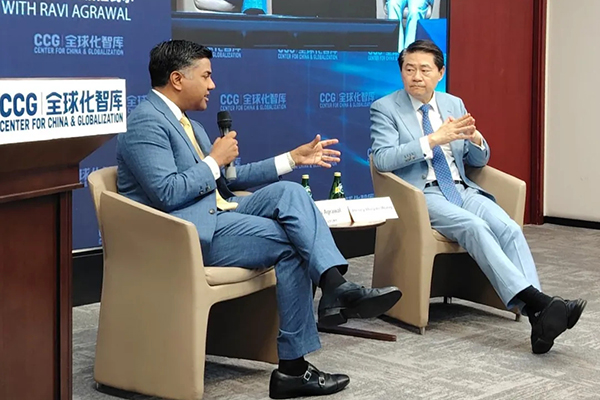 Ravi Agrawal (L), editor-in-chief of Foreign Policy, speaks with President Wang Huiyao of the Center for China and Globalization (CCG) at a dialogue event in Beijing on July 24, 2025. [Photo by Xia Fangting/Chinadiplomacy.org.cn]
Ravi Agrawal (L), editor-in-chief of Foreign Policy, speaks with President Wang Huiyao of the Center for China and Globalization (CCG) at a dialogue event in Beijing on July 24, 2025. [Photo by Xia Fangting/Chinadiplomacy.org.cn]
Describing the current period as a “pivotal transition,” Agrawal said the post-war international order faces growing strain from conflicts, protectionism and polarization.
“The system is broken,” he stated. “We must first acknowledge the problems, then work to fix it and create a more equitable, fair, and multilateral one.”
Agrawal praised China’s advances in green technology and decarbonization, calling for broader global adoption of these innovations.
“China has fundamentally figured out how to decarbonize,” he said. “The world now needs to leverage these advances in technology and bring them to other parts that desperately need them.”
He also highlighted China’s role in global governance, including its peacemaking efforts in the Ukraine crisis.
On trade, Agrawal warned that high tariffs ultimately harm consumers, saying prolonged trade wars like those initiated by the U.S. would hurt most Americans.
On the Trump administration’s efforts to restrict international student enrollment at Harvard University, Agrawal, a Harvard graduate, said the flow of international students represents “a vital indicator of a country’s future potential and success.”
When addressing the issue of China’s WWII contributions lacking due international recognition, Agrawal encouraged China to tell its own stories through global cultural platforms, particularly by highlighting its role in World War II.
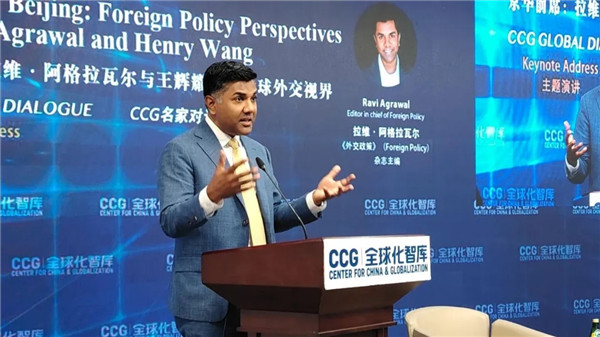 Ravi Agrawal, editor-in-chief of Foreign Policy, delivers a speech at a dialogue event in Beijing on July 24, 2025. [Photo by Xia Fangting/Chinadiplomacy.org.cn]
Ravi Agrawal, editor-in-chief of Foreign Policy, delivers a speech at a dialogue event in Beijing on July 24, 2025. [Photo by Xia Fangting/Chinadiplomacy.org.cn]
Wang echoed these views, advocating for stronger international cooperation and innovative governance approaches to address climate change and geopolitical conflicts.
The event concluded with appeals for enhanced global cooperation to tackle shared challenges in an increasingly fragmented world.
From China Daily, 2025-7-25
